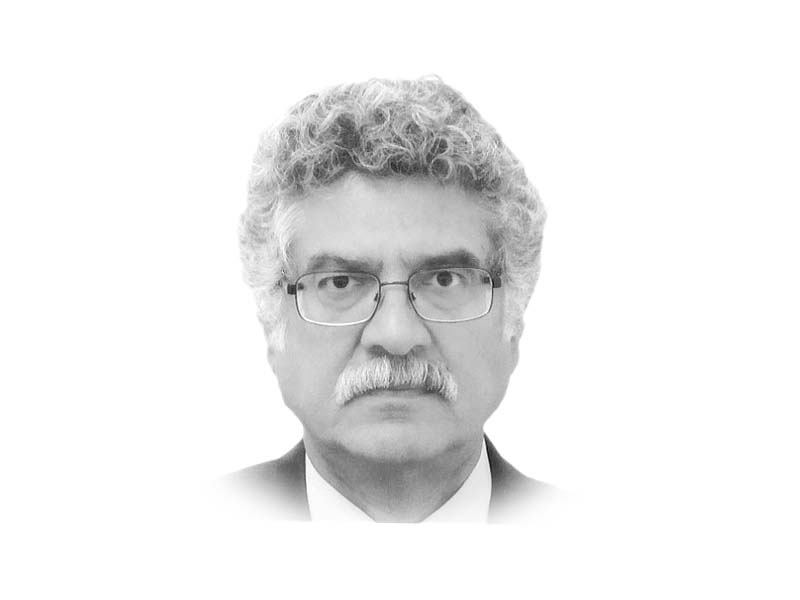
Second, widespread human rights violations in Kashmir became well-known within a few days through reliable international media reports, not to mention statements by human rights organisations like Amnesty International and Human Rights Watch. Accordingly, the high commissioner really did not need “access” to the area to act in accordance with his clear mandate to protect human rights. Third, for the high commissioner to seek access to Azad Kashmir along with Indian-occupied Kashmir where the real problem of human rights violations exists, is ludicrous to say the least. He must know, as does anyone else that it is the Indian government that has unleashed a reign of terror against the Kashmiris in the part of the disputed territory under its occupation. There are no human rights violations on the Pakistani side. Moreover, there is no limitation on access to Azad Kashmir. In fact, for more than six decades, the United Nations Military Observer Group for India and Pakistan (UNMOGIP) has maintained a permanent presence there. If the high commissioner indeed wanted to make “an independent and fact-based analysis of the situation” on the Pakistani side, his first recourse should and could have been to the UNMOGIP office in Pakistan.
Even so, Pakistan has neither in the past nor in the present situation denied the UN or the high commissioner access to Azad Kashmir, as was reiterated by the Foreign Office on August 18. This is not the case on the Indian side which has always denied access to occupied Kashmir to the UN, including UNMOGIP. Now that India has turned down the high commission’s request for access while Pakistan has conveyed that it would welcome a team sent by him, he should finally recognise where the real problem exists. While the high commissioner may claim that his position was determined by the desire to be “even-handed”, even if such a preposterous claim can be justified in the current situation, there are deeper reasons for his shenanigans. The fact is that the international human rights machinery, the Human Rights Council, the high commissioner and his office and the special rapporteurs, have all increasingly become instruments of political leverage in the hands of Western countries led by the US and the US does not want to antagonise its strategic Indian ally. It is not surprising, therefore, that the UN’s human rights system has remained silent on the Kashmir situation.
The role of politics in the UN’s human rights machinery has by now become so pervasive that double standards and hypocrisy have become the order of the day. Especially since the end of the Cold War, politically motivated doublespeak such as “responsibility to protect”, “humanitarian intervention” and “rights up front” have become catchphrases for leverage, intervention and regime change in the name of democracy, freedom and human rights. The glaring examples of this approach are the situations in Palestine, Afghanistan, Iraq, Libya and Syria. Other targets of the abuse of human rights principles and double standards are American/Western opponents like Russia and China, and small developing countries of marginal value to the West. Meanwhile, human rights violations such as the American use of torture and arbitrary detention in Abu Ghraib and Guantanamo, police killings of African-Americans and the murder of innocent people through drone strikes remains unaccountable. African leaders are hauled up by the International Criminal Court for crimes against humanity but not George W Bush, Dick Cheney, Donald Rumsfeld or Tony Blair. Similarly, Israeli abuse of Palestinian human rights or the incarceration of desperate refugees and migrants in inhuman conditions by Europeans and Australians, hardly generate opprobrium by the Western community.
The extent to which the human rights system has been corrupted is illustrated by two important facts. The first is that as one of the three pillars of the UN, along with security and development, human rights receives only three per cent from the UN’s budget. The high commissioner’s office, meanwhile, receives only 40 per cent of its funding from the regular UN budget; the rest is financed by voluntary national, mostly Western, contributions, the majority of which are earmarked. This ensures that the Council undertakes only those activities that Western donors permit. Secondly, the OHCHR staff is not selected on geographical representation, as in most other international organisations, but on so-called ‘merit’ which for the most part, means from Western countries. Even those from developing countries are actually resident in or have dual nationalities of Western states. Therefore, the system from its very basis is slanted in favour of the Western camp to play the human rights tune of its choice. Hence, the reality is not about human rights but human wrongs. It is in such a blatantly inequitable human rights system that India is quite literally getting away with murder. By promoting itself as a strategic ally to counter China and as a market for Western profiteering, India has managed to build a facade, behind which it continues to brutally suppress the Kashmiris and engages in consistent human rights violations with impurity.
Nevertheless, the lesson of history is that justice eventually prevails. The Indian occupation of Kashmir is politically untenable, legally bogus and morally reprehensible. Neither does India have the military force to subjugate the entire Kashmiri population. The Indian body politic will not, therefore, be able to sustain this self-inflicted festering wound for long. Pakistan, therefore, should not give up supporting the just cause of the besieged Kashmiri people. Perhaps not in years or even decades, but eventually their legitimate struggle will succeed.
Published in The Express Tribune, August 26th, 2016.
Like Opinion & Editorial on Facebook, follow @ETOpEd on Twitter to receive all updates on all our daily pieces.



1723032398-0/BeFunky-collage-(36)1723032398-0-165x106.webp)








COMMENTS (12)
Comments are moderated and generally will be posted if they are on-topic and not abusive.
For more information, please see our Comments FAQ